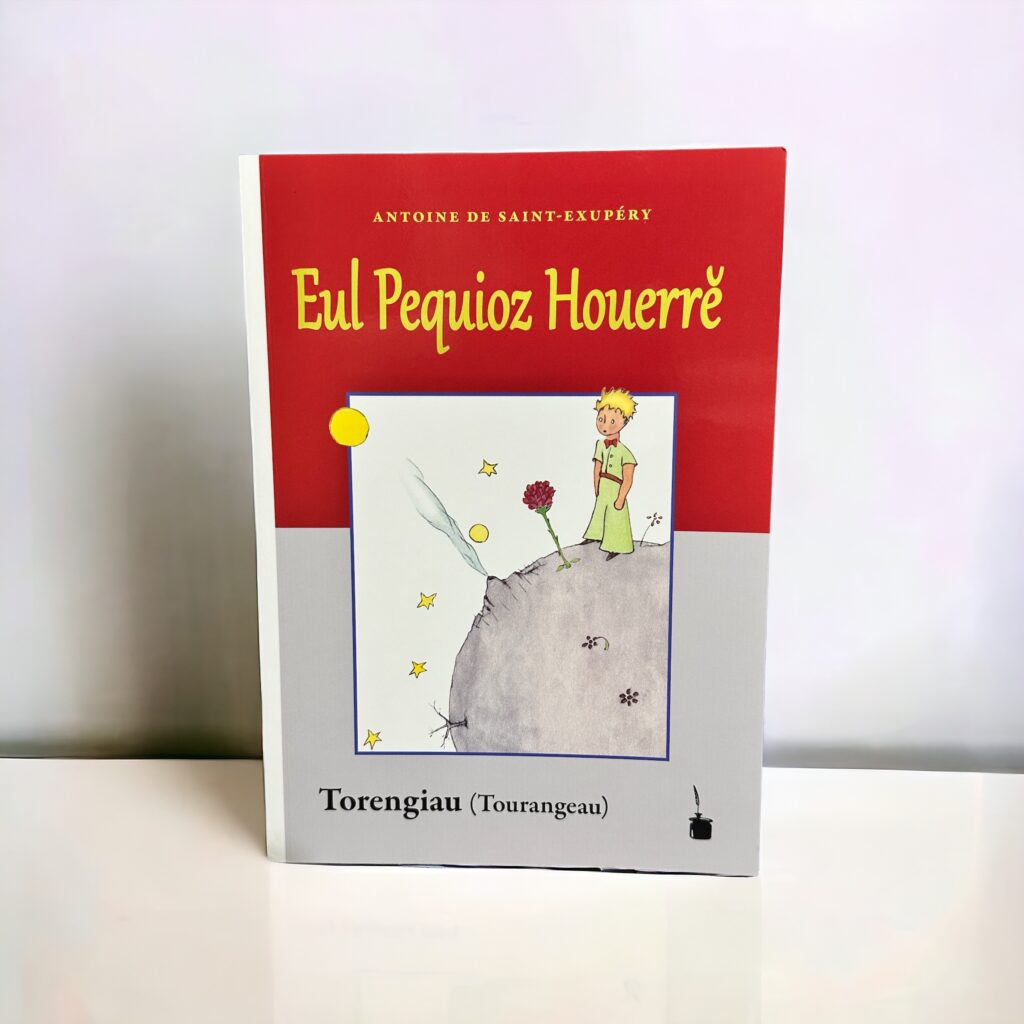
Eul Pequioz Houerrě — in Tourangeau.
Tourangeau is a historical variety of the Francien group, which itself is part of the larger family of Langue d’Oïl. Francien, originating from the Île-de-France region around Paris, played a crucial role in the development of Standard French. The Oïl languages were spoken in the northern half of France, as well as in some parts of Belgium and Switzerland. Tourangeau, specifically, was spoken in and around the city of Tours, located in the Loire Valley of central France.
While detailed descriptions of the Tourangeau dialect’s specific linguistic features are less commonly documented than those of Standard French or other regional dialects, it would have shared general characteristics with other Oïl dialects. This includes certain phonetic, grammatical, and lexical traits distinct from those found in the langue d’oc (Occitan) or other Gallo-Romance languages.
The Oïl dialects, including Tourangeau, would have exhibited variations in:
- Vowel sounds, including differences in nasal vowels, which are a prominent feature of French phonology.
- Consonant clusters, which might have been simplified or altered compared to Latin.
- Use of articles and prepositions, reflecting the evolution from Latin to the vernacular Oïl dialects.
- Verb conjugation and use of tenses, possibly offering a glimpse into the development of the complex French verb system.
Like other regional dialects, Tourangeau contributed to the rich tapestry of linguistic diversity in medieval France. The Loire Valley was an important cultural and political center, and its language would have reflected its status and interactions with neighboring regions and the royal court, which, over time, adopted Francien as the basis for Standard French.
The transition from Latin to vernacular languages in France was a gradual process influenced by political changes, migrations, and cultural exchanges. The establishment of Francien as the standard language was not immediate but resulted from the dialect’s association with the administrative and cultural centers of power, particularly Paris.
The specific characteristics of the Tourangeau dialect have largely been absorbed into Standard French, much like other regional dialects of the Francien group. The standardisation of French, especially after the French Revolution, aimed to unify the nation under a common language, which led to the decline of many regional dialects.


